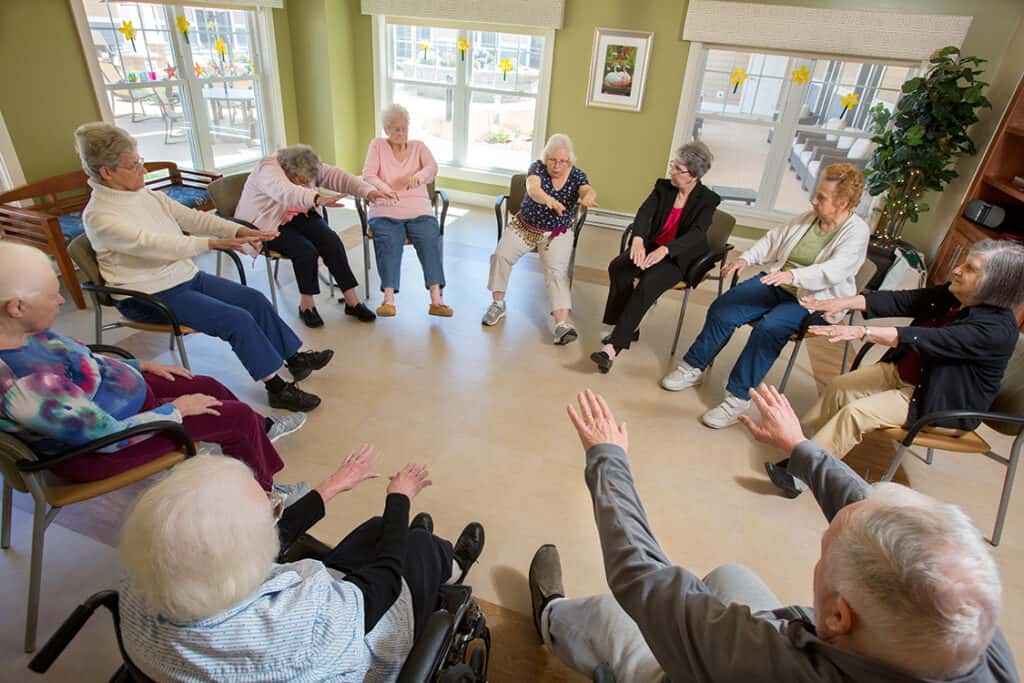Learn about new Memory Care therapies for cognitive well-being.
Learn about new Memory Care therapies for cognitive well-being.
Blog Article
The Duty of Assisted Staying In Giving Specialized Treatment for Mental Deterioration Clients
The stipulation of specialized care for dementia people within assisted living centers is progressively identified as an important element of reliable dementia administration. These atmospheres are created to attend to the distinct cognitive and emotional challenges dealt with by individuals with dementia, supplying customized assistance that promotes safety and well-being.
Recognizing Mental Deterioration Care Needs
Recognizing the care demands of individuals with dementia is important for supplying reliable assistance and improving their top quality of life. Dementia is a modern neurological condition that influences cognitive functions such as memory, reasoning, and interaction. As a result, people with mental deterioration typically need help with everyday activities, individualized care strategies, and psychological assistance.
Effective dementia treatment includes recognizing the distinct challenges dealt with by each person. This includes comprehending the phases of mental deterioration, which can range from mild cognitive impairment to innovative stages requiring extensive assistance. Treatment requires might include support in managing day-to-day routines, medication adherence, and keeping social communications to stop seclusion.
Furthermore, sensory stimulation and acquainted settings can significantly boost the health of people with dementia. Caretakers should be trained to recognize behavior adjustments and utilize strategies tailored to every individual's preferences and previous experiences. Techniques such as recognition treatment and memory can help interact efficiently and foster a feeling of security.
Eventually, effectively addressing the care demands of individuals with mental deterioration needs a caring method, recurring training for caretakers, and a commitment to keeping self-respect and respect throughout the caregiving procedure.
Benefits of Assisted Living

Assisted living advertises social communication amongst locals, promoting a sense of community and belonging. Involving with peers can minimize sensations of seclusion, which are common in those living with dementia.
In addition, many assisted living centers supply help with everyday activities, such as medication monitoring, bathing, and meal preparation. This support allows locals to preserve their freedom while guaranteeing their health and health are focused on. Ultimately, assisted living works as a useful source, stabilizing care and freedom for people with mental deterioration and their families.

Specialized Programs and Tasks
(Memory Care Charlotte)Acknowledging the one-of-a-kind demands of people with dementia, lots of nursing home apply customized programs and activities designed to enhance cognitive function and advertise overall well-being. These programs often include cognitive excitement activities that involve homeowners in memory games, challenges, and memory treatment, which encourages the sharing of personal tales and past experiences.
Additionally, art and music treatment play significant duties in fostering imagination and emotional expression (Assisted Living). Engaging locals in painting, crafting, or songs sessions can supply restorative advantages, helping to minimize stress and anxiety and improve mood. Physical tasks, such as gentle exercises and dance sessions, are likewise vital, as they advertise mobility and physical wellness while motivating social communication amongst residents
Structured day-to-day routines are often established to offer a sense of security and predictability for individuals with mental deterioration. These regimens can include set up dish times, group activities, and individualized treatment plans that cater to specific rate of interests and abilities. By creating an enriching environment loaded with tailored activities, helped living centers not only boost the top quality of life for mental deterioration patients yet additionally foster a feeling of area and belonging.
Trained Staff and Assistance
(Memory Care Charlotte)In helped living centers, the existence of trained staff is important for offering reliable support to individuals with mental deterioration. These specialists have specialized knowledge and abilities to address the distinct needs of citizens, ensuring their safety, convenience, and wellness. Employee get training in mental deterioration care, which consists of understanding the progression of the condition, recognizing behavior modifications, and employing efficient interaction strategies.
Additionally, skilled team are geared up to apply customized treatment plans tailored to each local's preferences and abilities. This individualized technique fosters a feeling of freedom and self-respect, allowing homeowners to engage in meaningful tasks that improve their lifestyle. The team additionally play an essential duty in keeping an eye on health and wellness and wellness, immediately recognizing any type of modifications in problem that may call for clinical interest.
Along with route treatment, trained team supply emotional support to citizens, helping to ease sensations of complication and stress and anxiety that typically go along with dementia. Their compassionate approach develops a caring environment where locals really feel valued and comprehended - Memory go now Care. Ultimately, the experience and devotion of qualified staff are indispensable in providing detailed treatment that satisfies the complex needs of individuals living with mental deterioration in assisted living setups
Family Participation and Resources
Family participation plays a substantial role in the care of people with mental deterioration in nursing home. Involving household members in the care procedure not just improves the psychological wellness of the resident however additionally cultivates a joint setting where care plans can be tailored to individual needs. Families can offer important understandings right into the preferences, background, and actions of their liked ones, which can inform caretakers and bring about more tailored treatment strategies.
Moreover, aided living centers usually supply sources for family members, such as support groups and educational workshops. These resources can help families comprehend dementia, improve communication methods, and establish coping systems. Involvement in these programs can encourage member of the family, outfitting them with the devices needed to support their liked ones efficiently.
In addition, regular communication in between family members and staff is essential. This continuous dialogue permits family members to remain educated about their liked one's progress and any type of adjustments in treatment plans. Inevitably, a solid partnership between family members and aided living centers cultivates a setting of trust fund and understanding, ensuring that people with mental deterioration get the specialized care they are worthy of while maintaining their family connections.
Conclusion
Finally, helped living centers play a vital function in dealing with the special demands of dementia patients with customized care and support. By fostering safe environments, advertising social interaction, and implementing structured routines, these facilities improve the overall health of residents. The involvement of skilled personnel and families further enriches the treatment experience, guaranteeing that private preferences and histories are valued. Inevitably, assisted living provides necessary sources that considerably enhance the quality of life for those living with dementia.
Report this page